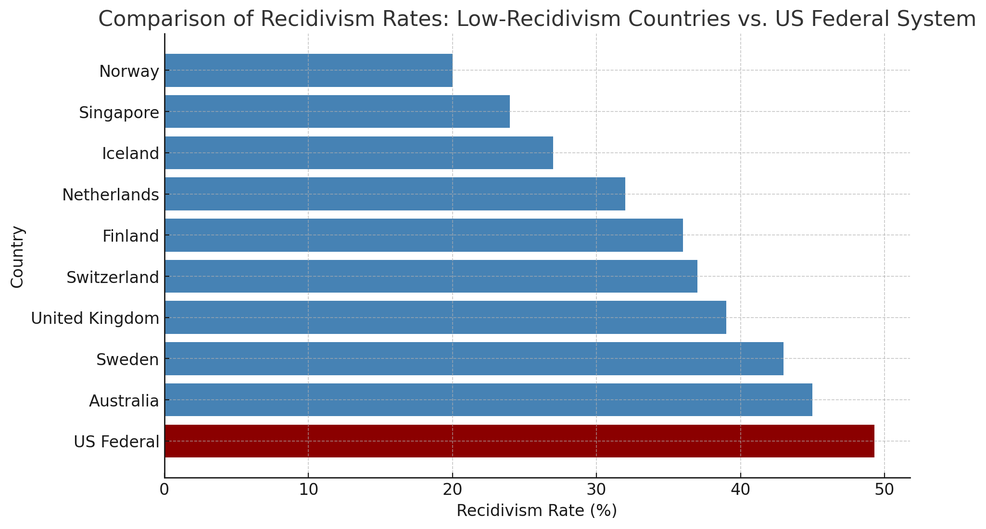
In the Bureau of Prisons, Every Clown Runs His Own Circus
- Details
- Published: 8 April 2025
Opinion: In the Bureau of Prisons, Every Clown Runs His Own Circus
At the national level, it is the Department of Justice’s stated goal that all federal correctional facilities under the Bureau of Prisons (BOP) operate in compliance with standardized policy. In practice, however, that vision is often lost in translation. What exists instead is a fragmented system, where local administrators exercise inconsistent — and at times dangerous — levels of autonomy. The phrase “every clown has his own circus” may seem crass, but for many BOP institutions, it captures the absurdity of decentralized mismanagement all too well.

Analyzing U.S. Federal Prison Recidivism: The Need for Evidence-Based Reform
- Details
- Published: 9 April 2025
The United States has long grappled with high rates of incarceration and recidivism, posing significant challenges for the criminal justice system and society at large. While state prison recidivism rates have been extensively studied, the recidivism trends within the federal prison system remain less frequently analyzed. However, emerging data suggest that targeted reforms and evidence-based policies could significantly improve post-release outcomes and reduce recidivism.

The Contraband Crisis
- Details
- Published: 23 May 2025
How Corruption Undermines Federal Prisons
The politics of contraband within the Federal Bureau of Prisons (BOP) is a complex and deeply entrenched issue. The problem isn't just about illicit goods finding their way into facilities—it’s about systemic corruption, mismanagement, and a workforce that, in many cases, has little incentive to operate with integrity.

Punishment Without Purpose: Why the Bureau of Prisons’ Disciplinary Approach Fails
- Details
- Published: 9 April 2025
To a hammer, every problem looks like a nail. That adage perfectly encapsulates the Bureau of Prisons’ (BOP) approach to inmate management—punishment as the universal solution. "The beatings will continue until morale improves" is not just a cynical joke; it’s an accurate depiction of the BOP's disciplinary philosophy. But before delving into why this strategy is fundamentally flawed, it’s worth understanding why the BOP leans so heavily on it.